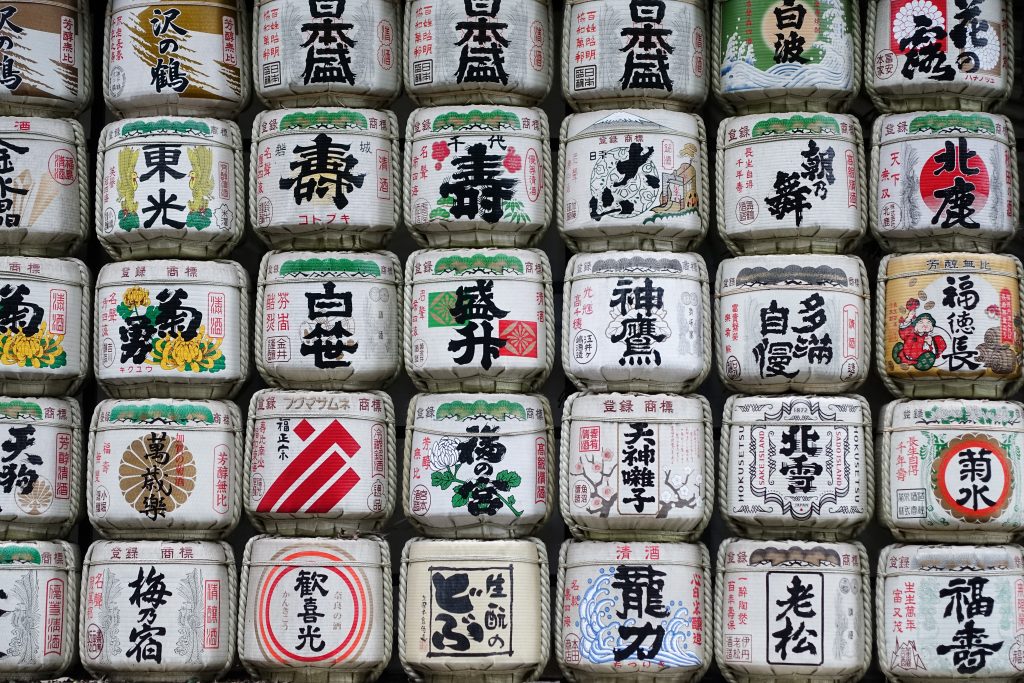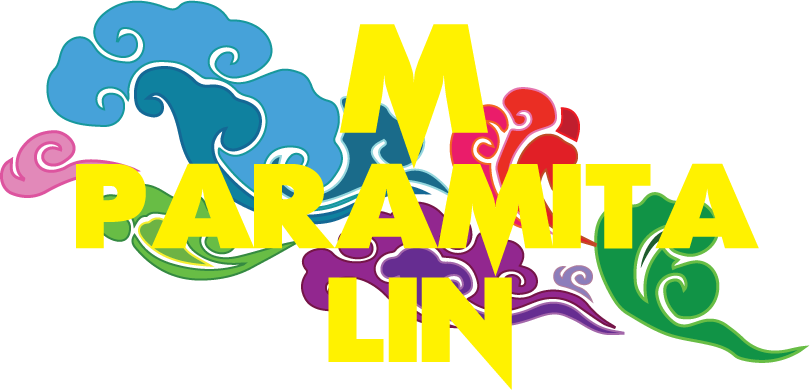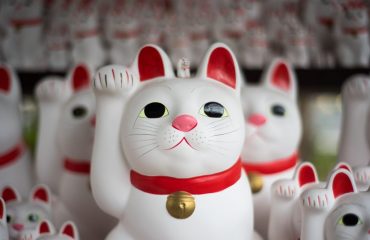
I love visiting Japan. And it’s not just me, all my non-Japanese friends who’ve been to Japan can’t wait to return. But whenever any of us talk about our Japan holidays, it always ends up something like this: after gushing over the food, the culture, and the beauty of Kyoto for over half an hour, my friend J caught himself and said, “This is not to excuse their flagrant war crimes, nor their blatant disregard of responsibility for those war crimes,” which he then followed with a guilty, nervous laugh.
It is hard to not have mixed feelings about Japan when you’re from another Asian country. World War II was a long time ago, sure, but I don’t think people of my generation and the previous ones could ever forget the things that Japanese soldiers did. My grandparents and some of my older relatives were profoundly traumatized by the things that happened to them during the war. They never spoke of what happened but the resulting alcoholism, addiction, and mental illness meant that the trauma became intergenerational and continues to affect our family.
Experiences like this keep appearing every time you dig up something on World War II in Asia. I’m writing a dark comedy book about a triad doctor trying to solve a series of mysterious cat deaths, aided by his sidekick friend who happens to be a reincarnated demon. It’s set in contemporary Hong Kong but the book is partially inspired by a transcript I came across more than a decade ago. It was from a series of interviews with inhabitants of Hong Kong fishing villages about the Japanese occupation, and the stories weighed on my mind for a long time. They talked about funny things, like the Japanese spies who pretended to be boy scouts despite being middle-aged, but also really grim things, like the mass rapes of women, young girls being forcibly taken away to be comfort women, and the executions of anyone who annoyed the occupiers. From the architecture and bureaucracy to language and culture, it’s not an exaggeration to say that to this day, East Asia and much of Southeast Asia are still profoundly marked by the Japanese occupation, physically and mentally.
And yet, and yet…Japan is just such an objectively awesome place to visit. I just returned from a trip with my preschooler, who had several meltdowns out of overexcitement, and I found myself feeling so profoundly grateful that we were in Japan. People swooped in to help, offering cookies to him and a sympathetic “Ganbatte” to me. People carried my luggage whenever I struggled, they held doors open, and made sure my kid was safe. Everywhere we went, we encountered kindness and politeness. (I’m also aware that we could pass for Japanese, and my kid is rather cute, so we probably benefited from that, as well.)
I don’t want to make it seem like this is a simple matter of “Japan did bad things but it’s amazing how cool things are now” because the issues are a lot more complex and may even be somewhat incomprehensible to people who aren’t Asian and live in Asia. Japan’s ability to invade other nations and be such a model nation are two sides of the same coin. The strength of its cultural identity and its people’s commitment to the good of the community is what makes the country such a great pleasure to visit and yet these are the exact same things that made it so successful at causing immense suffering in East Asia and Southeast Asia.
And it’s this same cultural identity and strength that countries like China are trying to build. It always irks me when people who don’t know anything about China (and sadly, I have to include Hasan Minhaj here now although I still do think his show is good when speaking on American issues) discuss the issues there with such a Western lens. People think that China is trying to emulate some kind of dystopic 1984 government, but that kind of dystopia is more a Western fantasy than a Chinese one. What people keep forgetting is that China’s civilization that stretches back 7,000 years, and those thousands of years are stained with violence and suffering.
Things like “social credit” (which has been widely misunderstood) or censorship are China’s way of cultivating the kind of cultural strength that Japan has. I’m not going to speak on the morality or ethics of what’s going on, but it’s important to understand why it’s happening. Consider this an explanation, but not an excuse.
China’s history is one of revolution and upheaval, which has mostly led to incredible amounts of suffering and death, and its leaders do not want to see this again. Being in Japan has really highlighted how different Japan is from even an emerging superpower like China. When it comes to what China is going through, imagine rural people from Victorian England being suddenly thrust into the 21st century and told to be capitalist but that their traditional way of life no longer exists. That’s the kind of dislocation and alienation that leads to blindly following exploitative leaders who will destroy the entire country. I’ve seen this my entire life living in Third World countries, and it’s happening all over the world now. China isn’t trying to stamp on the face of civilization, it’s trying to prevent it from collapsing yet again with the tools it has, for better or worse.
Countries tend to practice censorship in order to protect their societies and identities (Japan is another example yet again, and so is the United States, which has suppressed the histories of indigenous people), although criticism tends to fall on countries that aren’t US allies. I should add here that I’m constantly shocked that people don’t seem to see the US as the bully here: the US and Europe have historically wanted to plunder India and China, and it’s clear their objective isn’t “democracy” but to destabilize and weaken China and turn it into a vassal state that they can exploit. While certainly China has done stupid things that it needs to be held accountable for, the US and Europe clearly have ulterior motives when it comes to criticizing China.
China is not censoring for the sake of being an asshole; it’s attempting to replicate Japan’s cultural unity and strength because we can all see for ourselves how great it makes a nation. Once more, I have to tip my hat here to Xi Jinping for not losing it from having to manage a billion recalcitrant Chinese people. I can barely handle my kid’s tantrum without wanting to have one myself, and he has to deal with Chinese people, many of whom will swim through shit to find a loophole or a way around a rule just to get ahead.
Don’t get me wrong, as much as you can love something you have no control over, I love being Chinese and I usually have very benevolent feelings towards my fellow Chinese, but Goddammit, they really irritate the shit out of me sometimes for not just following rules that are meant to make things better for everyone. And you know much it can improve daily life because it’s the Japanese focus on communal harmony over individual satisfaction that makes it awesome to visit Japan. You don’t feel stressed over things around you going well, and not having to worry about one’s safety or well-being makes a huge difference in your quality of life.
Here I must add the obligatory sheepish “Yes, the war crimes” but before I end this post, I do think it’s worth pointing out that European and American powers also ravaged our nations (and in some cases, continue to wreak havoc), but I would say that the resentment against them is less than the resentment against Japan.
I suspect this is partly because the Japanese colonizers made sure we knew that they saw us as lesser, that we were beasts to them. This isn’t to say that the Europeans, but most especially the Americans, thought of us differently, but their goal wasn’t just to subjugate us, they wanted us to worship them. So they brought propaganda and massive brainwashing in the form of religion and pop culture. They formed governments in their image that would ensure that people would be educated to love whiteness. And it worked. It still works. It’s easy for Asians to accept being ruled by white people, but not by people who look like us–also a reason why some Hong Kongers dislike mainland Chinese rule and pine for British rule despite the fact that the British treated locals like second-class citizens in their own land.
The cognitive dissonance is a little crazy when you look closely, but then, I guess cognitive dissonance is the default state of mind when you live in a post-colonial society.



